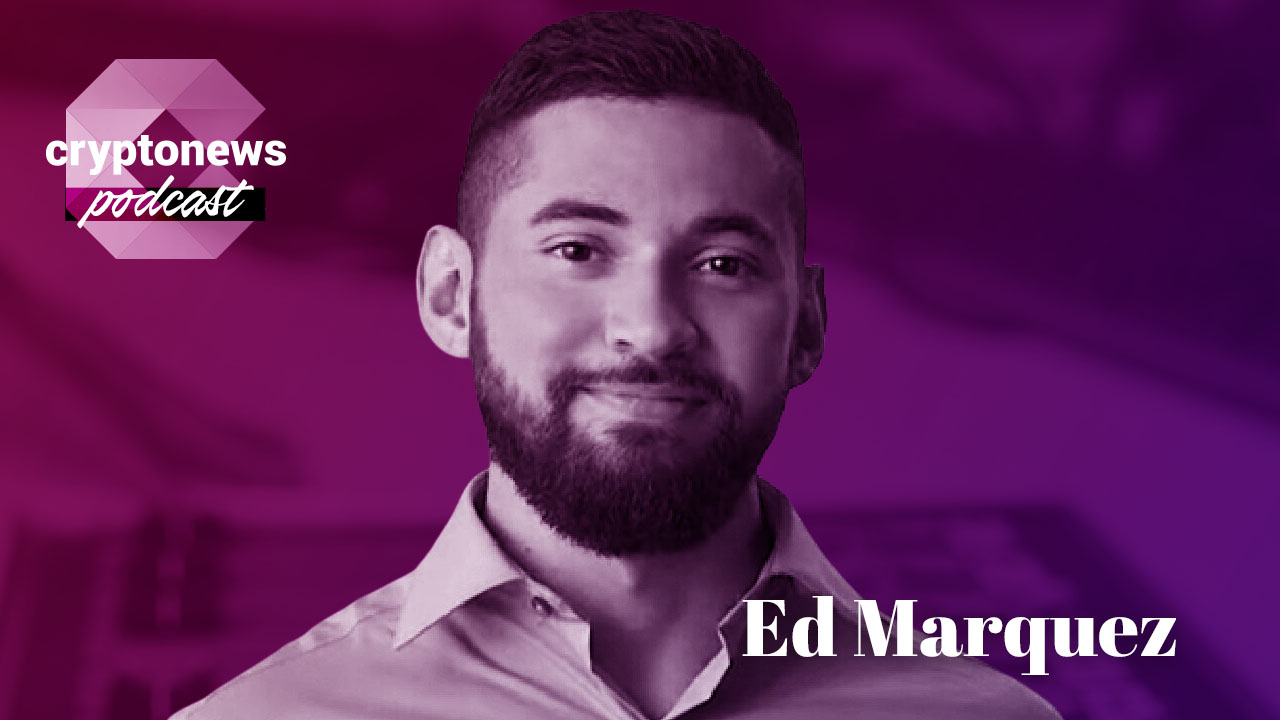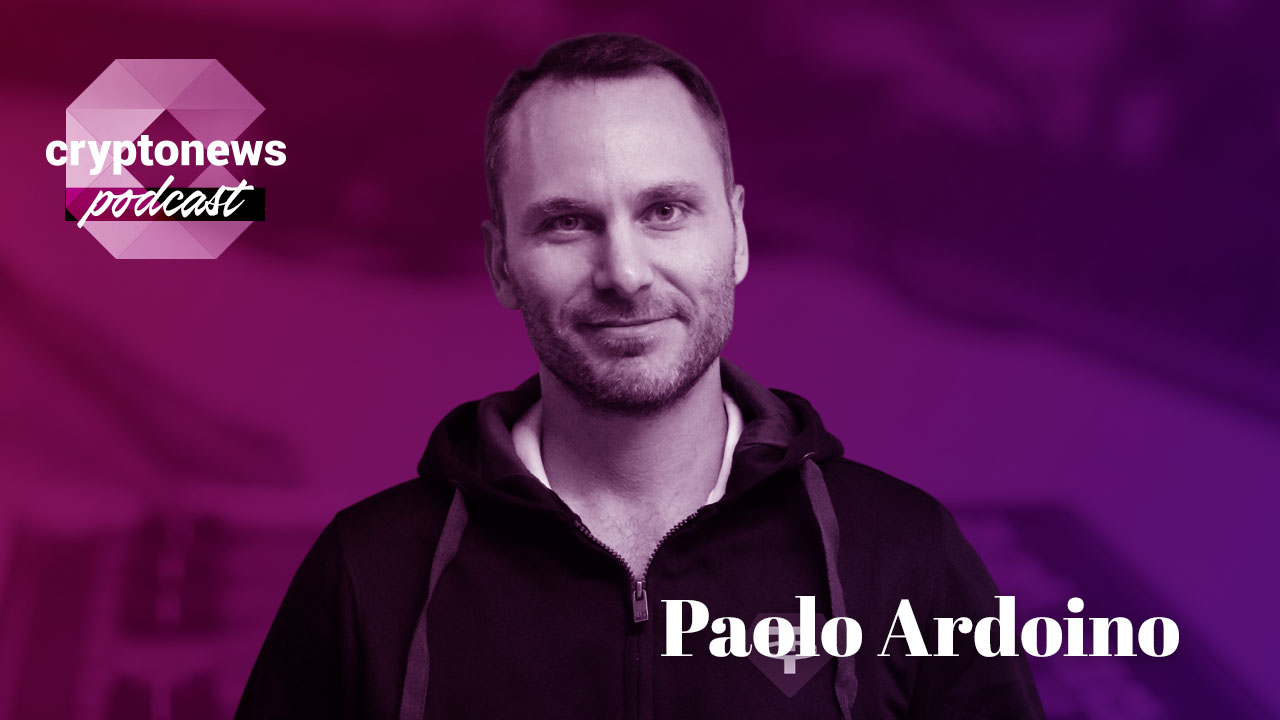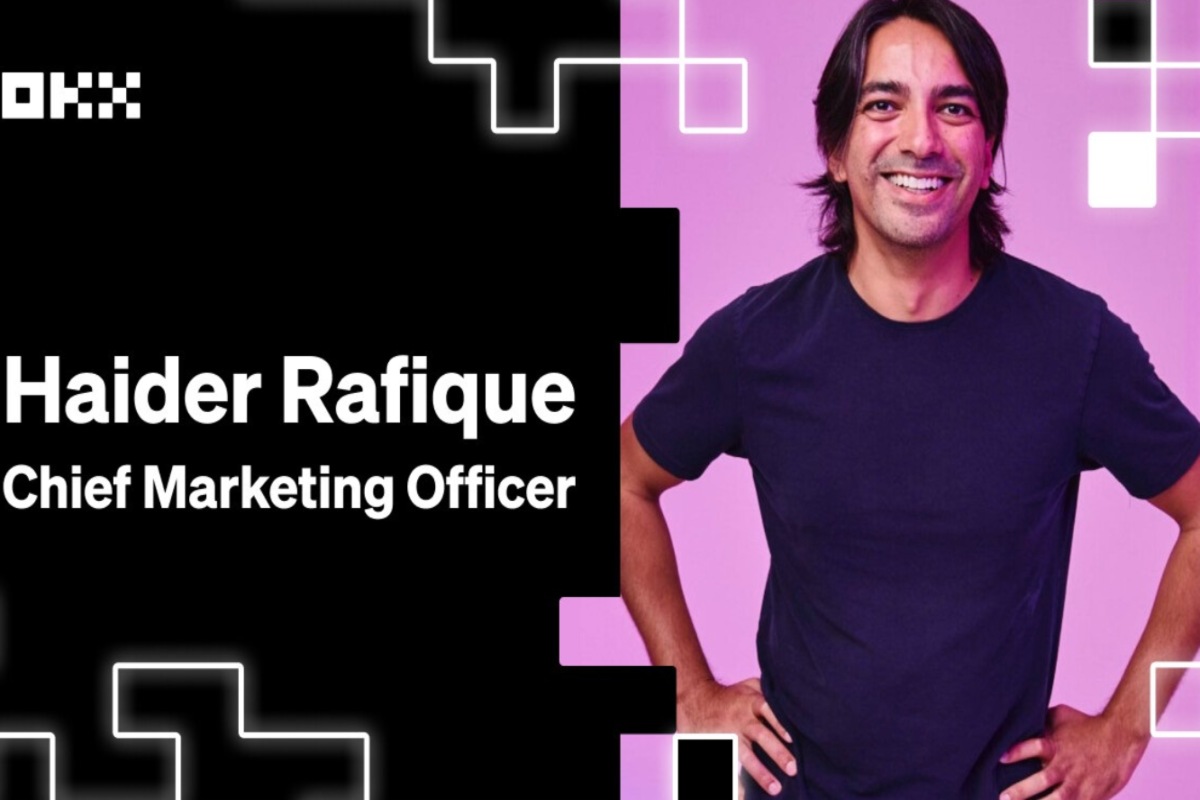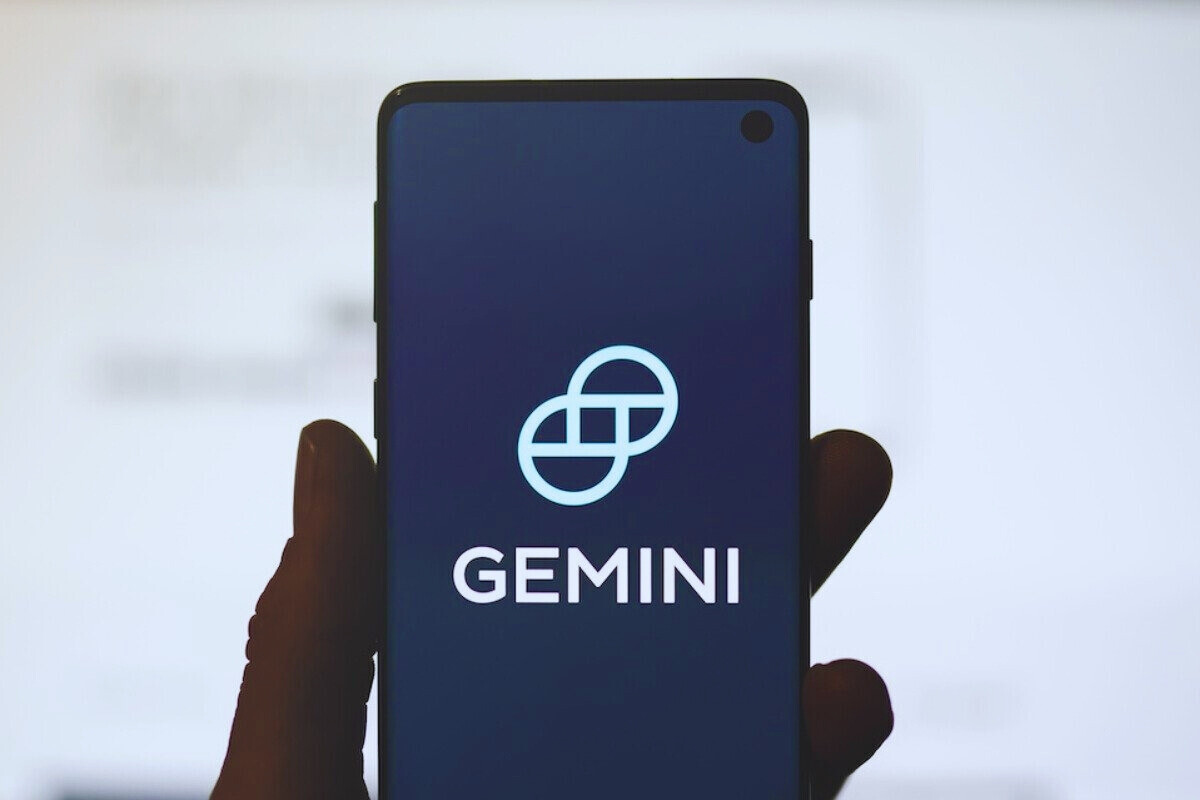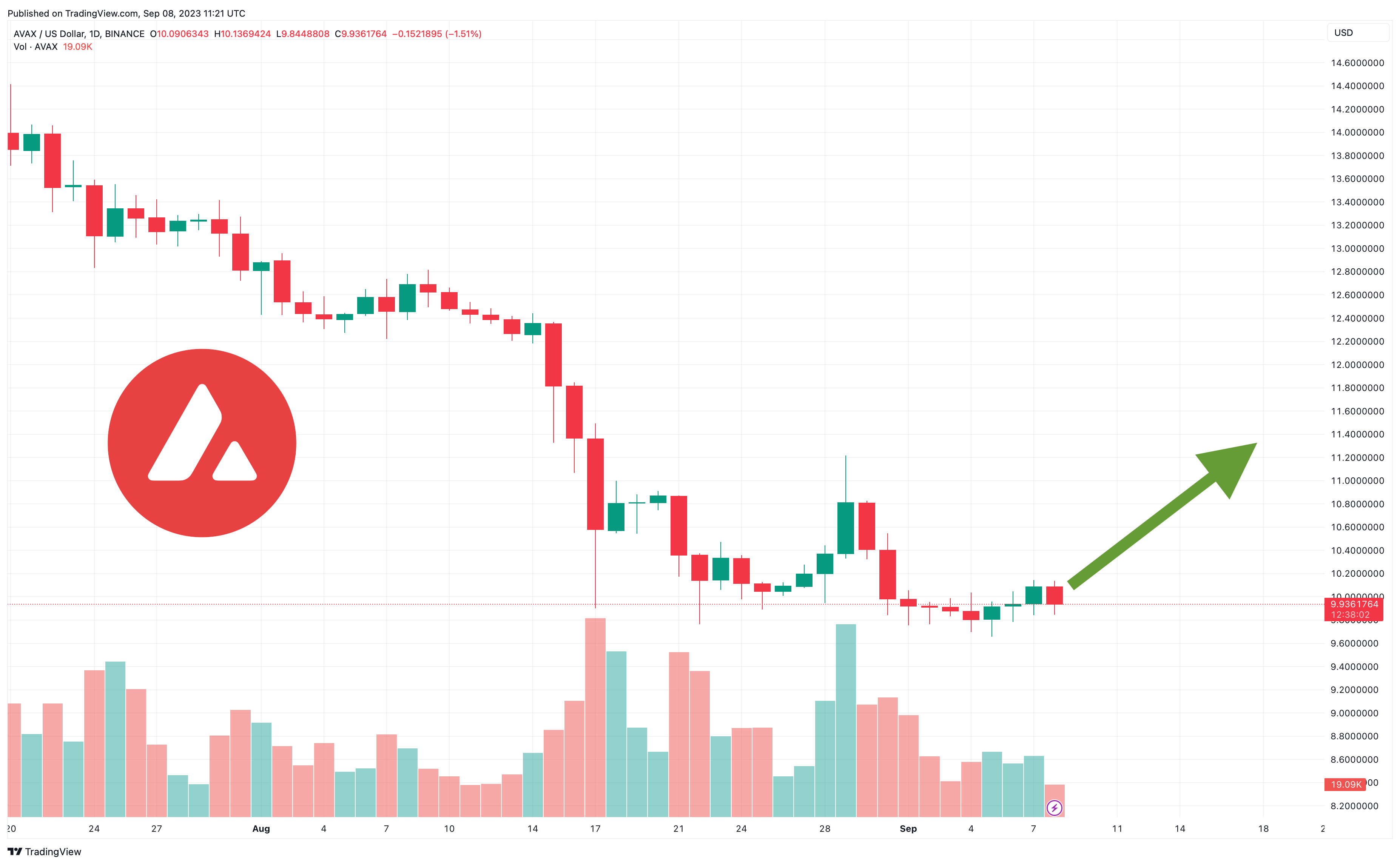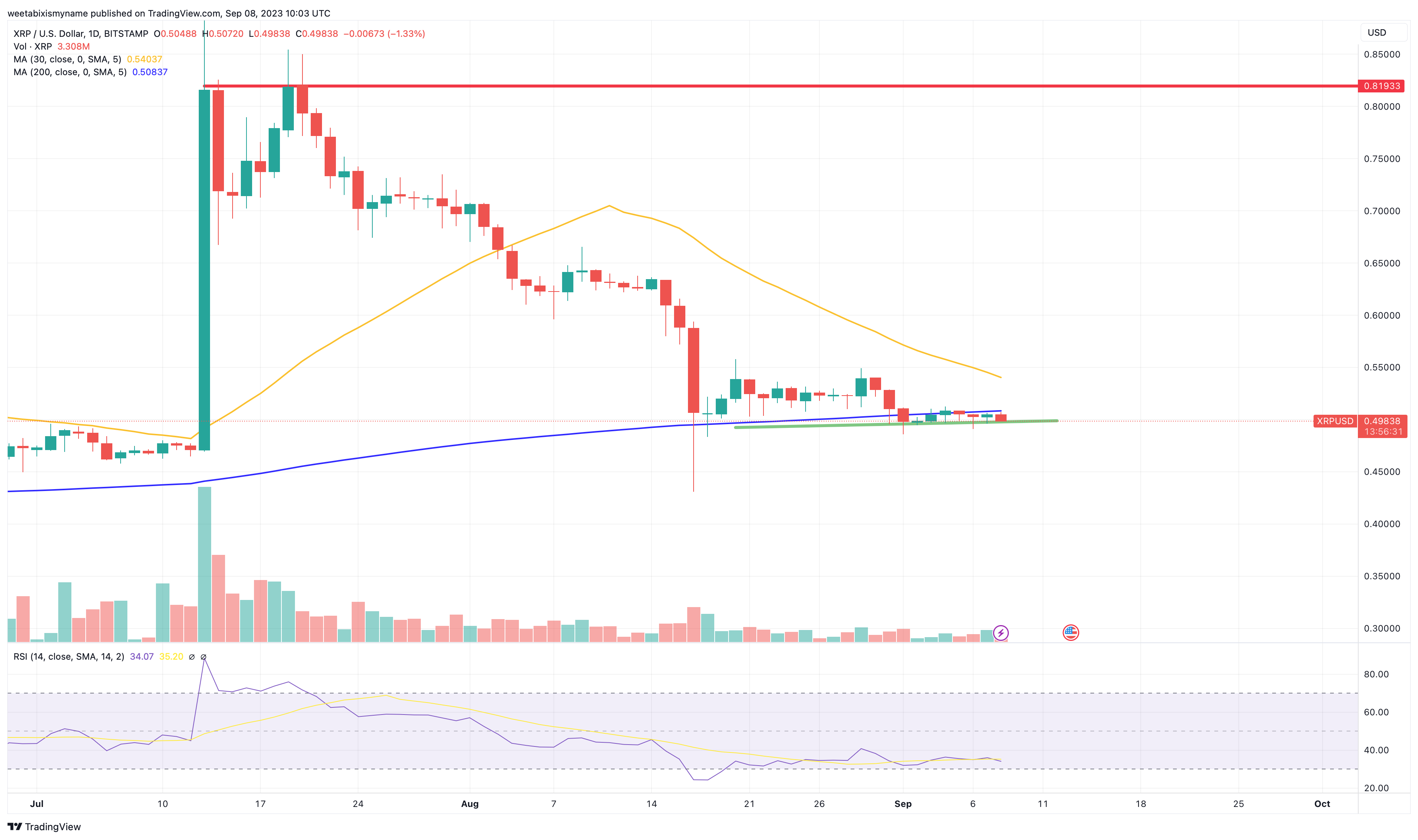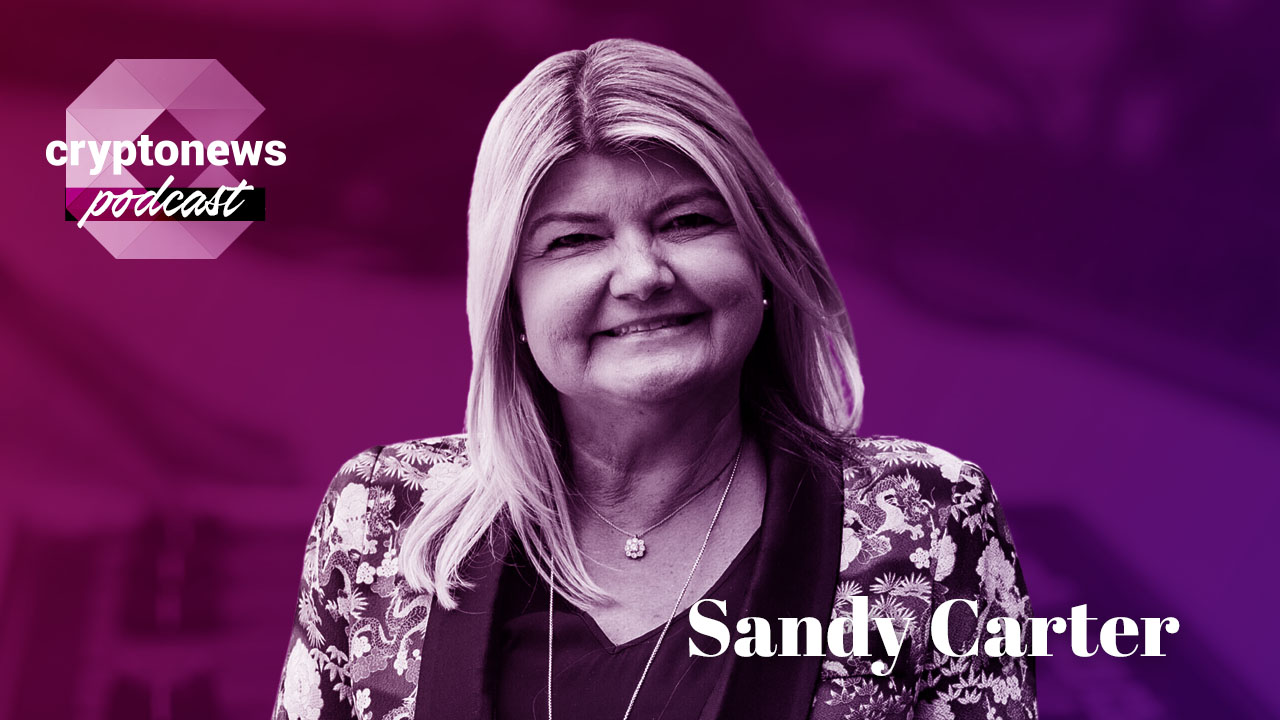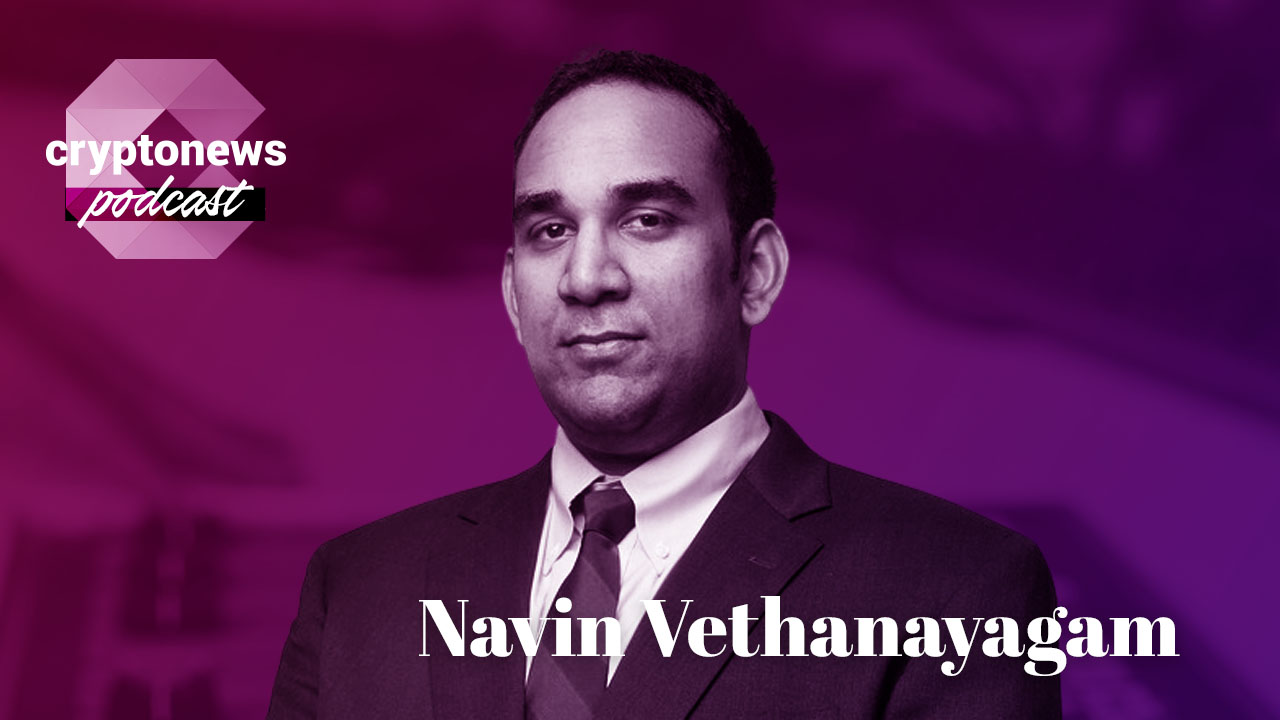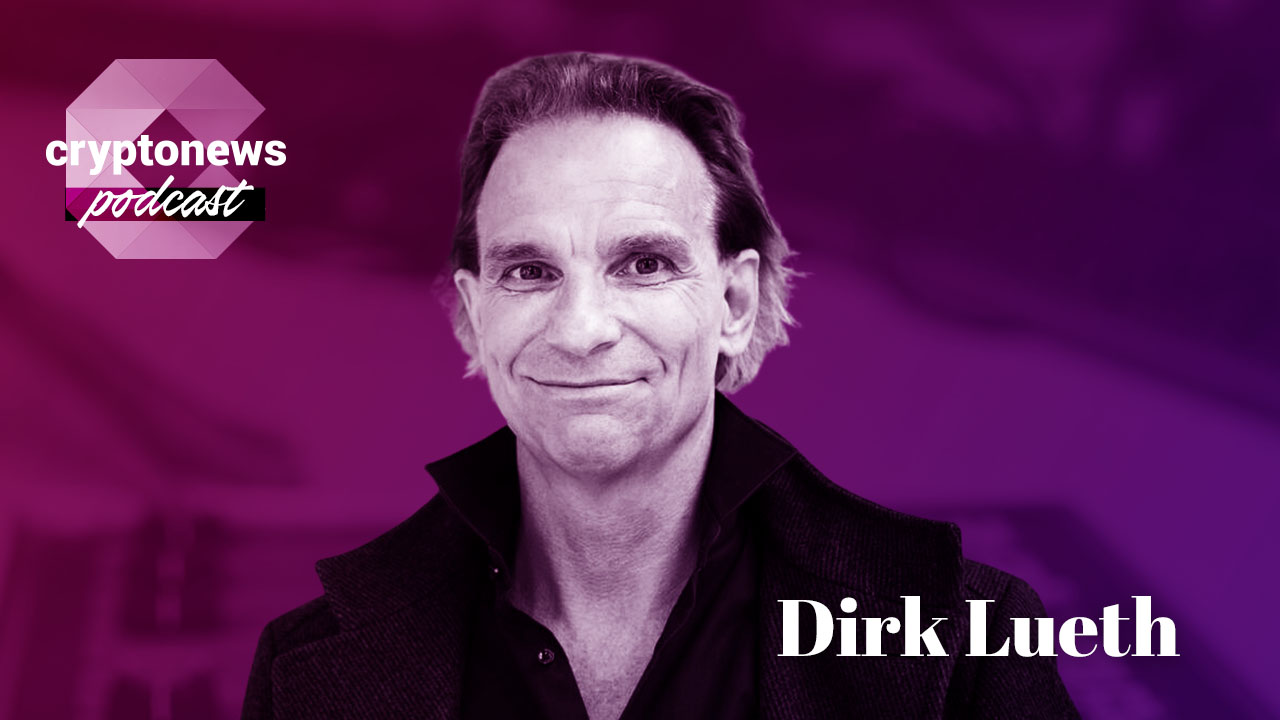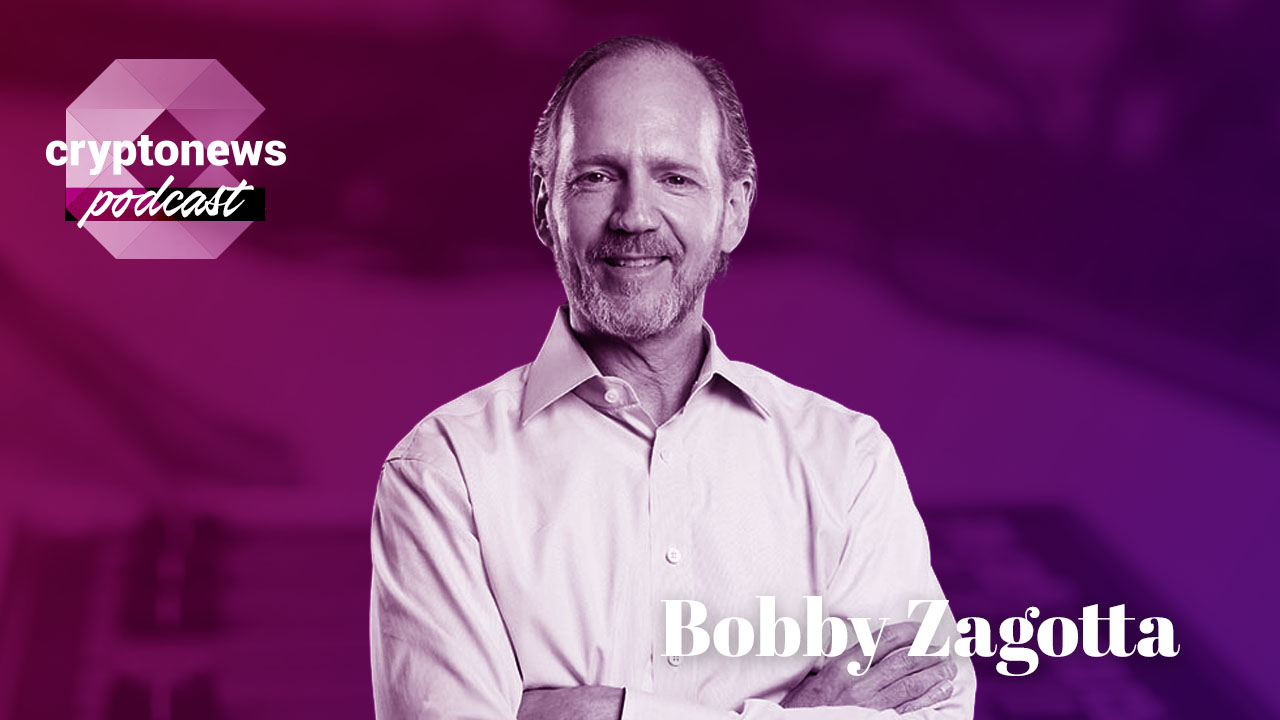Eric Chen, CEO of Injective Labs, on Building Finance Specific Blockchains and the Current State of DeFi | Ep. 263
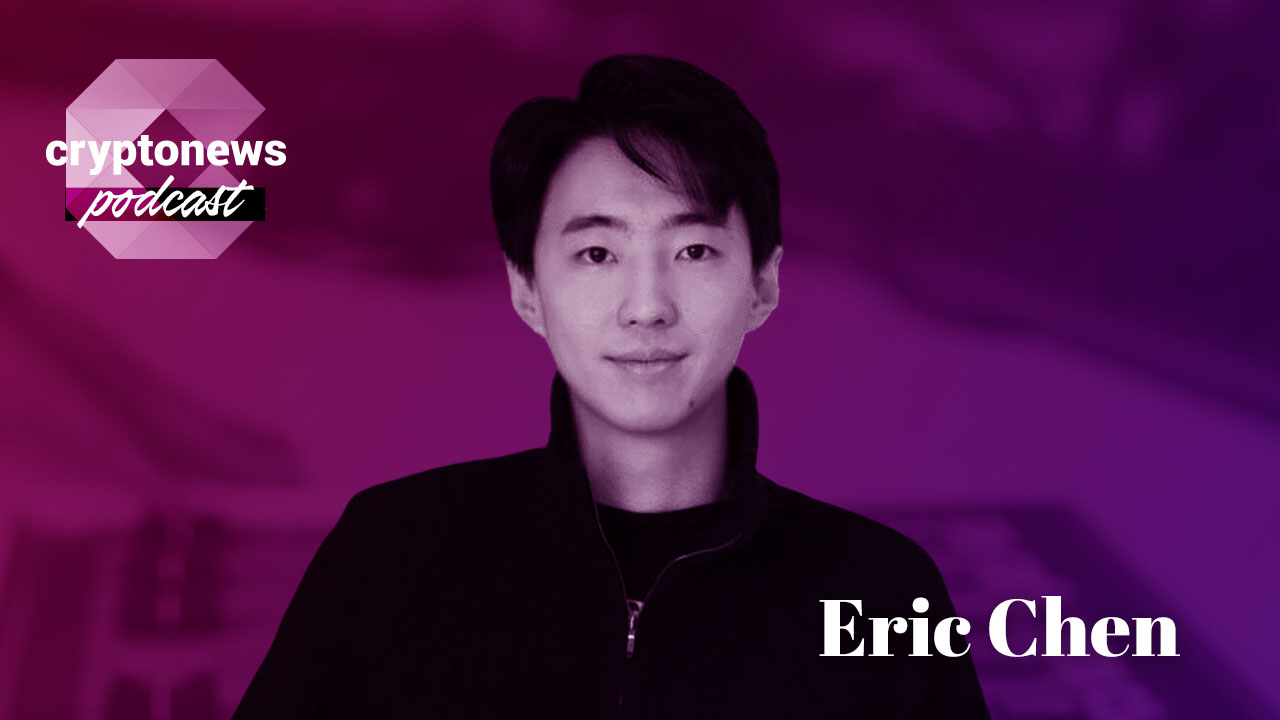
In an exclusive interview with cryptonews.com, Eric Chen, CEO of Injective Labs, talks about building blockchains specifically for finance, driving industry growth and redefining community engagement, and the current state of DeFi.
About Eric Chen
Eric Chen is the co-founder and CEO of Injective Labs. Prior to Injective, he was a researcher at Innovating Capital, working on trading strategies and protocol research. Before that, he was a part of the NYU Blockchain Labs. Eric has worked within the crypto industry since 2017. Eric dropped out of NYU and currently has one of the best accounts on crypto Twitter.
Eric Chen gave a wide-ranging exclusive interview, which you can see below, and we are happy for you to use it for publication, provided there is a credit to www.cryptonews.com.
Highlights Of The Interview
- Founding story and vision of Injective Labs
- Investments from Mark Cuban, Jump Crypto, and Pantera
- Building blockchains specifically for finance
- The current state of DeFi; Where the industry stands, where it’s going, and the main use cases
- Driving industry growth and redefining community engagement



Full Transcript Of The Interview
Matt Zahab
Ladies and gentlemen, welcome back to the Cryptonews Podcast. We are buzzin as always, and I'm super pumped to have the one and only Eric Chen on the show today, Co-Founder and CEO of Injective Labs. Prior to Injective, he was a researcher at Innovating Capital, working on trading strategies and protocol research. For that, he was part of the NYU Blockchain Labs and has been working in the crypto industry since 2017. Nice and early, we'd love to see that. Eric also dropped out of NYU and currently has one of the best accounts on Crypto Twitter, just putting out nothing but fire 24 hours a day. Eric Chen, pumped to have you on my man. Welcome to show. How you doing?
Eric Chen
Good. Thanks so much for having me.
Matt Zahab
Pumped to have you. You are a New York lad living in Manhattan, which is the absolute best, probably the best city in the world. I mean, pretty tough to debate against. You dropped out of NYU. That must have been crazy. I'm sure your parents, your friends, your family were like, give your head a shake. What are you doing? Walk me through that decision. What was that like droppin at NYU to co-work in crypto?
Eric Chen
Yeah, I think the process for that was actually pretty much a no brainer for me personally. It was too good of an opportunity to pass up on. I think as I started full-time with the industry, just like what are two years late? I would have missed out on a lot of opportunity and just be much later than everyone else within the space. And on top of that, there were a lot of very exciting and inspiring people to work alongside. Yeah, it didn't really take much consideration at all. I think it probably took much longer time for people around me to wrap their head around or to understand than for me to decide.
Matt Zahab
Walk me through some of those combos though, because again, this is something that I get asked. I didn't drop out of uni. I did my four years, but looking back at it, I would have been a good choice. It would have been probably the right choice to do. I love uni. I had a blast. I don't know about learned a ton, learned a lot on the qualitative side of things, right? The networking and conversations, partying, all that kind of good stuff, which I do think moves the needle in life. But on the quantitative side, definitely didn't learn as much as I would have liked to. And I'm sure that's part of the reason why you dropped out as well. You understood that you were able to grab some crazy working experience in a booming industry. But with that being said, what would you tell someone who has entrepreneurial spirit, who wants to grind, isn't really messing with uni at the moment and wants to drop out? Any words of advice, wisdom, things you wish you did differently?
Eric Chen
Yeah, I would say for me, it was actually quite easy to convince a parent and stuff like that. Because there's this angelic, plan A and plan B, I'd receive a thing, initial funding or at least commitments. So that would be a plan A. Plan B It's fairly easy for me to get a job or continue what my previous part-time job was. So that wasn't exactly the biggest issue after dropping out. I would say above all, I was like, education is still an extremely important. One of my partial regret was definitely not being able to finish school or take some grad courses I really wanted to take and kind of forced myself like a tough learning path. So I would say, unless there are absolute irrefutable reasons for you to drop out, definitely staying in school is certainly much more impactful and much more high A.B. experience and path. I'm well read.
Matt Zahab
Yeah, well said there. Let's jump into Injective. Love the logo, by the way. Super clean, I mean, great setup. It's fun. You and I were talking about this before the show. Every office now has like a little media room. Like it's crazy. Every office I've been to in the last couple of years now has media room for pods and video sessions, whatever the case may be. And I mean, before COVID that was never a thing. So just a cool side note there. But walk me through Injective before we get into the nitty gritty, the founding story, the vision, overview, ecosystems, key projects, all that stuff. And then we'll sort of pick and choose where we want to jump into as we move forward through the conversation.
Eric Chen
Yeah, I think, you know, like Injective last start off as a fairly simple, you know, mission. And that is, you know, trying to democratize finance through decentralization and, you know, providing like a permissionless and accessible platform for all. And obviously, you know, like that is very much of a big direction. The really the more nuanced or like the more specific approach in Jack of Laugh start off as is utilizing a lot of the existing infrastructure, especially at a time where you have like a resemblance of Dex, you have some very early nascent primitives within decentralized finance and, you know, fairly nascent as well, you know, rails on and off ramps. One of the key, you know, blockers were one of the key missing part was having like a fair and scalable and dynamic exchange of infrastructure. And back then, you know, like dex was extremely gas intensive. It was literally just slamming water or some type of an Ethereum of more about was, you know, no ways to scale it. And, you know, they all understand that, you know, it's almost impossible to trade. So Injective, logically you know, start off as trying to solve that problem by, you know, figuring out the scalability layer and more importantly, figuring out like the far running resistant and the free type of solution to make sure that there is a, you know, viable infrastructure for any type of exchange, applications in the most dynamic way possible. And to this day, you know, like Injective as an ecosystem and, you know, what Injective Labs focus is on has certainly changed a lot. You know, it started off from like a blockchain with a lot of like, you know, exchange focus permanent into a very much sector specific, generalized, you know, semi-generalized, at least, Layer-1 blocking bill for financial applications. At this point, you know, it's effectively identified as like an open, interoperable blockchain with a set of very powerful, you know, next generation, DeFi primitives and, you know, out of the block modules where different types of these protocols and applications can plug and play and integrate with. And these modules, you know, include decentralized spot and derivatives exchanges, and, you know, prediction market, binary options, you know, lending, world calls, etc. much more.
Matt Zahab
That's crazy. So just to summarize, you and the team in essence built a blockchain specifically for finance. And again, with the this stem from really just the old state of DeFi being built on Ethereum, such a shit show, like you said, crazy high gas prices, you're literally just slamming the ETH order book and you guys were like, hey, this needs to change. It needs to be much leaner, more efficient. And that's why there was a need for a blockchain specific finance or a finance specific blockchain rather.
Eric Chen
Yeah, I think it goes a lot beyond that. Initially, that was during my process, which is like, you know, since EVM is obviously turned complete, and, you know, it's just, you know, like a pretty dynamic environment with a set up like pretty quirky, like pretty compiles, you can technically just have like L2 solution that has, you know, almost like, you know, like synchronous environment or like a continuous environment, aka like very fast, like block reduction, and just call it a day, you know, host whatever sort of applications you want. But very quickly became, you know, a very significant issue, because, you know, within any type of generalized environment, the chips are stacked against the DeFi applications, because DeFi applications require kind of like a constant economics of scale for, you know, a lot of the core operations, it has, you know, like typically, you know, for, let's say, order bulk exchanges, for example, it's usually, you know, comparatively computationally light, but at the same time, you know, extremely space intensive. So it kind of goes around, you know, kind of like the general heuristic for, you know, how like a gas economy would work or like any type of smart contract environment, not just for EVM. So it requires kind of like the interference of like a, you know, a feltson native exchange infrastructure that has, you know, more like blockchain friendly mechanisms, and also like a guarantee in terms of like matching intervals, etc. And also, you know, somewhat like a guarantee and like liveness, as well as, you know, kind of like a guarantee with an tonality where like, you don't have like your entire order or, you know, your entire position like the neck, because there was a, you know, small fork, etc. And all the, you know, DeFi related, you know, kind of like ecosystem also has that, you know, you'd be working around this kind of core infrastructure to make it truly, you know, like scalable and also as sector, kind of like a financial ecosystem. So this means that with these types of like native modules like Oracle, like order book, etc. You can on top of it build a lot of different types of like smart contracts or, you know, different types of application that you don't necessarily have to worry too much about all that, you know, like gas fluctuations, etc. And, you know, kind of have to guarantee that, you know, your application is going to be up to date and live. I think those are like, you know, definitely like the most important aspect.
Matt Zahab
How does one even, again, this is way out of my pay grade, Eric, like I wouldn't even know where to begin, but how do you start building these blockchains and exchange specific, you know, protocols and bits of technology? Like, where do you even start? Again, I'm not a coder, so this is so, you know, nascent to me, but like, if someone did have a technological background and was like, okay, I understand algos, I understand order books, I understand the ins and outs of transactions, and more specifically exchanges, like where do you get started? How do you implement this?
Eric Chen
Oh, it's pretty straightforward, to be honest. You basically start with like, you know, blockchain infrastructure that's like pretty valuable. Obviously, you know, if there isn't such, you know, like customizable like SDKs or like, you know, like infrastructure tools, like it'll be a lot more painful. But, you know, thankfully, like there's Cosmos SDK, you know, Tendermint, etc. that can basically resolve like, you know, 60% of like the consensus level or like, you know, the core level, like complexities. And you simply, you know, like customize a lot of logic within the core SDK itself, and, you know, messed around with like different types of modules and implement like the logic that you're looking for. And obviously, you know, like there's definitely a lot more like granularity and issues behind it. But, you know, getting started with like a zero to one step, that's actually, you know, super straightforward. Thanks to, you know, a lot of the existing tools and infrastructure around it, and mainly things that, you know, Cosmos SDK.
Matt Zahab
Interesting. Super cool there. I mean, you made that sound a hell of a lot easier than it is. I'm sure it's absolute nightmare fuel, but we'll take your word for it there. But yeah, with all honesty, it must be absolutely insane. So let's take a sort of a deeper look into Injective, walk me through a couple of this specific projects that you guys are working on, some of the ecosystems that you're diving into. And then we'll get into some of the fun stuff, like getting investments from Mark Cuban, Jump Crypto, Pantera, and all those lads.
Eric Chen
Yeah, I think I'll have to top up my head. You know, if you asked me this question like three months ago, or like half a year ago, it would have been super easy. I was like, oh, like there's Helix, and you know, there's a couple of other ones, you know, a lot of the adoption and traction are like sent around Helix, or the exchange module, etc. processing, you know, like, I don't know, like maybe 12 or like $11 billion to date for past year or two. But if you, but now, especially like, you know, in like, July, August and September, there has just been, you know, crazy amount of, you know, interest and, you know, traction for a lot of the, you know, tabs are, you know, building natively within Injective and deploying on top of the Injective, where I'm, you know, constantly trying to catch up on like what all the builders are working on, you know, what they're doing, even off the top of my head, you know, there's Talis, which is a highly successful, you know, NFT platform and this point with a bunch of volume, exactly, you know, how much it's, you know, it's a better question to ask Talis. But, you know, like it's certainly, you know, beating out a lot of the major L1s and numbers of adoption and traction. There's obviously, you know, quite a few other like native projects. I think like, you know, Black Panther, they're working on like ask management protocol and generating like real yield strategy. There's Astroport, which is quite exciting, you know, like AMM protocol was like native, orderable based, OP and liquid, you know, like provisioning and swapping. There's quite a lot to be honest and, you know, Qwerty, Dojo, like Exchange Apps. And then, you know, there's a FrontRunner, which is kind of sports betting, like a gaming app. And then like recently, there's also like, you know, like Aliens On Injective, which is working on quite a few things, I think beyond just like entity. And there's also like, you know, I think like a few of productivity apps even, but yeah, like it's just been like a lot of, you know, like developer interests and deployments and a lot of traction behind them as well.
Matt Zahab
Yeah. I mean, I feel like, I don't know about you, but I feel like the sentiment's changing. I feel like, I don't want to say the bear market's over because it's not, but I feel like the sentiment at least is on the rise. Do you agree with that?
Eric Chen
Yeah. I mean, like we, we certainly felt like witness or, you know, basically a plunge of it, especially because, you know, like I feel like, you know, during like acquire a common market, like, you know, currently where we are right now, that's when, you know, like signal to noise ratio is like the most optimal. And there's a lot more like, you know, merit based filtering and, you know, a lot more like capital position, cost efficient, you know, like onboarding and traction. If you have, you know, like a strong reason for developers to be interested to be building on top of you.
Matt Zahab
100%. Great point there. Eric, we got to take a quick break and give a huge shout out to our sponsor of the show. But when we get back, we got to talk about a couple of fun things. You mentioned FrontRunner. I know you've been buzzing on FrontRunner. You have some hilarious tweets about FrontRunner and I'm a sports gambler myself, big sports fan. We got to get into that. Before we do huge shout out to PrimeXBT, longtime friends of cryptonews .com and long time sponsors of the Cryptonews Podcast. I absolutely love PrimeXBT. They offer a robust trading system for both beginners and professional traders. It doesn't matter if you're a rookie or a vet, you can easily design and customize your layouts and widgets to best fit your trading style. PrimeXBT is also running an exclusive promo for listeners of the Cryptonews Podcast. After making your first deposit 50%, that is 50% of that first deposit will be credited to your account as a bonus that can be used as additional collateral to open positions. That is CRYPTONEWS50. The promo code is CRYPTONEWS50, all one word to take advantage of this offer and receive 50% of your deposit credited to your trading account. Now back to the show with Eric. Talk to me about FrontRunner. This looks, candidly speaking here, I didn't know about them until I was doing prep for the show. Again, you have to do what you gotta do. I always lurk my guest Twitter account. It's one of the best spots for some good talking points. Looked at them, they seem sweet. What's the deal with FrontRunner? Their Twitter bio is the number one sports prediction app. It's tender for sports fans. That is hilarious. Tell me more about this. Why does this get you going?
Eric Chen
Well, from my perspective, it's a very interesting utilization. That's a lot to exchange module primitives, especially on the derivatives side. Because effectively the way that FrontRunner works is that they take existing financial primitives for derivatives in measurements and really turning it into something that is applicable to a much more broader audience. Effectively speaking, they utilize this binary off-game primitive, which is a binary outcome that has a very light reliance on Oracle, but at the same time it has a lot of flexibility on binary outcomes, which is perfect for sports, etc. But at the same time, which is obviously a non-binary outcome, but at the same time it's a fixed duration for, or guaranteed like a resolution. And utilizing these primitives, they turn it into like a betting or like a gaming platform where it looks and feels like any type of sports betting platform that they're familiar with, but in reality it's fully decentralized with a lot of very powerful like liquidity aggregation and synergetic relationship with liquidity providers. Because I don't know much about the betting or gaming industry, but one thing I do know is that liquidity fragmentation is extremely palpable and apparent. And one of the things that FrontRunner can do is to have this global platform where anyone can provide liquidity, anyone can introduce order flow into like a nexus of events, and provide probably the best possible solution for the overall market. But when I actually started using it, that's when I realized like how would I know about sports?
Matt Zahab
I see. And where does the Tinder part come into play there? It's that the bio is number one sports prediction app. I think in sports prediction apps are different than sports betting apps, but where does the Tinder for sports fans come into play?
Eric Chen
I mean, it's a similar type of like abstract mechanism as like Tinder, right? It's a binary choice on any type of like potential events or potential objects. So, for FrontRunner's case, it's like for every single sports event, you can have a binary bet on it. So that would be betting that one team would win and the other team would lose or reverse, right? Whereas for Tinder's case, it's like making a choice. Yes to this person or no to that person. Both of them are fairly similar and mechanisms. There are some other products that like FrontRunner offered that's a little bit more interesting, like throughout the entire season, who is the winner, etc. And you speculate on odds for that. So that's not necessarily like a binary outcome per se, but it's fairly similar mechanism as well.
Matt Zahab
Gotcha. We gotta take a step back and go through Helix. Are you guys investors in Helix? What's your deal with Helix? Why do you... I mean, I understand they're a great company with really good tech, but what gets you going about Helix so much? I see them all over your Twitter.
Eric Chen
Oh, it's a flagship exchange application built by Injector Labs.
Matt Zahab
Gotcha. Makes sense. There you go. So yeah, give me the quick TLDR on Helix and then we'll jump into it a little more.
Eric Chen
Yeah. I think it's just like the one of the most, vanilla in a sense or one of the most native ways to interact with the exchange module with an Injective. It has like the full-fledged exchange experience, but in reality, the entire infrastructure and backend overall, like trading experience or interaction experience is fully decentralized self-custodial and on-chain. So there's a great amount of work trying to optimize for user experience to converge it with what they're used to with, let's say like Binance, Coinbase, etc., but at the same time, fully preserving, fully on-chain and decentralized nature of things. Essentially, it's a very strong showcase of the early capabilities of Injective as a blockchain with some of the, even just basic utilization of modules built on top of Injective. So even to this day, it's been highly popular, was a lot of volumes and stuff like that. But I think more importantly, and also inspired a lot of developers to dig further into Injective and build more exciting products than Helix within the ecosystem.
Matt Zahab
Helix is big for B2B, is it not? Aren't a lot of actual exchanges trying to snag some of the tech from Helix and implement it in their own?
Eric Chen
Yeah, so there's obviously a lot of other exchange applications because Helix doesn't have sovereignty over, it doesn't have exclusivity over the liquidity and flow within its platform. So a lot of other applications can also build similar offerings, tapping into the same type of liquidity and do the same type of flow. And this is obviously a very useful tool for various exchanges and stuff like that. I think there's also a couple of like two companies adopting the same, but I think another fairly interesting part is that there's also a lot of institutional adoption, contributing liquidity to Helix and other exchange applications within Injective with DevOps, like institutional programs, etc.
Matt Zahab
Totally feel that. I'd love to jump into the investing side of things. I mean, you dropped out of school, you started companies, you've done a whole lot at such a young age. What was it like getting investments from Mark Cuban, Jump Crypto, you know, Pantera? I mean, you guys also have a $150 million ecosystem fund, like walk me through the ins and outs of actually raising money and becoming a VC yourself. Did you ever dream of this as a kid? Did it just sort of happen? Some of those conversations that happened, you know, what are some of the best takeaways from your careers of VC as well?
Eric Chen
Yeah, I think, or like the ecosystem fund, and you know, the more recent like Best of Capital. I think it's more like, you know, never really wanted to be a VC per se, but you know, there were just like opportunity to present to itself and, you know, basically like decide to synergize like a resource. So for ecosystem fund, it's, you know, one of the primary, you know, like drivers for recent, you know, adoption and, you know, developer interests for an Injective. And one of the things we saw prior to the ecosystem fund was that there were a lot of, you know, like institutional players and VCs, etc., that are, you know, trying to, you know, explore like potential opportunities within an Injective or, you know, like betting on, you know, like the network itself, etc., but there were just, where like that much established like discovery process or basically like opportunities in a more general sense. And by, you know, synergizing all of their kind of deal flows, effectively speaking, and, you know, bringing them all together to identify as like, oh, like it's peak bear right now, but don't assume that, you know, there's no like, you know, VCs or like funds, you know, out there investing. And it'll help you see, helps VC a lot, because it also helps them, you know, identify opportunities at scale, you know, brings all their, you know, like resources and, you know, flows together and, you know, helping each other with like due diligence, but more importantly, you know, synergizing, like the resources to back the best possible projects out there. And I think it's a matter, you know, like a type of opportunity where like, of both my and like partners over time, just run into a lot of like angel deals, etc., and fly easier to, you know, like bring them all into one, synergize them, but like support and stuff like that. Because we realize that, you know, like we do give out like personal checks here and there, but like, you know, we oftentimes are very wary about doing so, because we end up, you know, spending a lot of time, like helping them basically, you know, helping them build their product, giving them a lot of technical advice, and sometimes you make them like a full lot of rule book, like, oh, like, you know, if you like implemented this way and this way, like you can get the product double then, like this amount of times, but like that, because, you know, we've been there, and we know exactly like, you know, how can we build some of the potential blockers here and there. And we just realized like, you know, it's much easier. So like, you know, merge all the resources and coordinate them in an official way, so bring them all into one entity.
Matt Zahab
Very cool. Convos Mark Cuban, what was that like? Did you speak to him at all when you guys did the race?
Eric Chen
Yeah.
Matt Zahab
How was that? Cool dude?
Eric Chen
I think it was like, yeah, very interesting. He basically, you know, like you would expect someone like Mark Cuban to have, you know, limited attention towards like all of his like leads, not even saying like, you know, like his portfolio companies, but like, you know, all the potential products to reach out to him or like, you know, like helping out with like existing like a portfolio projects, you know, basically, you know, dealing with the needs of ones or like, you know, requests for support from like his portfolios, I don't know how many hundred companies, but he's arguably one of the most, you know, responsive, one of the most prolific and one of the most productive person we've ever seen because he would, you know, always almost like respond to any type of email, even our, you know, very first email ever to Mark Cuban. And, you know, actually spend a lot of time, you know, diving deep into understanding, you know, like what we're working on and, you know, how Injective works or like, how the blockchain works or how it's, you know, able to, you know, provide all the native primitives for all the projects. And yeah, like it's been a pleasant, you know, working with him the entire time.
Matt Zahab
That's very cool. Let's jump into the state of DeFi. This is again, DeFi has been a little wishy-washy, you know, over the last year. So we had the big boom 2020, 2021. Sort of not fall for cliff per se, but definitely volume to slow down to my knowledge, still very similar. What's the current state of DeFi? Where does the industry stand? Where's it going? Any future really cool use cases do you see in your summary? What is the current state of DeFi?
Eric Chen
I think that the current state of DeFi is heavily like utility or like merit driven. Oftentimes I would say like during like 2021 or 2022, it's been heavily like focused around products and tools that tends to avoid the question of what is this utility behind us or like what is inherent value problem. But now if someone goes to me and tells me to explain what are the current trends within DeFi or like what are the interesting or well adopted tools out there, it's a very much of a theoretical flow on oh like this, here's why people need it and here's why it makes sense to have it. And I think one of the interesting or one example of this would be like the recent trend around like liquid staking derivatives and adoptions around it and also the restaking economics. It's a very easy, you know, like value prop and it's a very clear and helpful to users. And you know, like that's been like kind of like the, I would say like the consensus or like the culture, I would say around like a lot of the ecosystem projects within Injective as well. It's like, you know, I think one of the exciting lending protocols calling up to is working on like a lending application on top of Injective and the value prop for, you know, a lending protocol is clear, but for another lending protocol, oftentimes, you know, people can't really answer it. But, you know, thanks to, you know, a lot of the Injective native infrastructure and, you know, some of the exciting works that, you know, Neptune did, it's very, you know, like defensible because what Neptune does is that it effectively allows for the collateralization of, you know, various types of assets, but more importantly, you know, allows abstract assets like derivatives positions, open orders, etc. And, you know, once you create like an account through a Neptune, you can essentially like collateralize or borrow open orders per positions or, you know, end to end spot assets, etc. And what that means from a user-facing perspective is that you can in fact typically build out like an entirely, like FTX, like experience or some piece or like a, you know, portfolio margining experience that everyone just knows and loves where you have much more flexible risk calculation. You have much more, you know, kind of gracious margining that's very much sensible where, you know, if you have like a long position within like a spot asset or yourself and you cover it or you hedge it, which like our short position, typically, you know, you'd have to like very actively manage it in order to make sure your position doesn't blow up. And more importantly, you know, it's very expensive for you to do it because it means that you have to post enough collateral to establish your short position. But, you know, for like, you know, what would have cost like $1 ,000 worth of capital, you can easily cheat that was $100 or $200 worth of capital, which is kind of like the ethos of, you know, like a more efficient infrastructure.
Matt Zahab
Touché, I love that. Any other areas of crypto Eric that get you going, you know, doesn't have to be DeFi or exchanges, whatever. What do you think of Friend.tech, the grayscale, SEC, Big Dub, like what else is front of mind for you right now that gets you going?
Eric Chen
Yeah, I think Friend.tech is a user experience. I was absolutely, you know, astonished by it. It's, you know, it's one of the early, you know, like demonstrations of the potential behind account abstraction. So that's always extremely exciting to me. I really love like, you know, how Friend.tech onboard users and this is probably, you know, like the start of something very exciting for the entire space. And, you know, like, it's something that we believe in working on as well.
Matt Zahab
How so with the onboarding? Do you mean with just sort of creating the scarcity aspect with the need of codes to get in the actual onboarding once you're in the app? In what regard do you do enjoy the onboarding?
Eric Chen
Even trade transactions with just face ID or like, you know, your Google account and stuff like that.
Matt Zahab
Oh, I see. So the simplicity and, you know, lack of friction.
Eric Chen
Yeah. I think, you know, one of the biggest painplugs for crypto or blockchain for longest time for people are arguing against it was, you know, the difficulty and like onboarding saying that, you know, people are incapable of managing private keys on their own, or it's way too painful, processes, etc. I think, like with this, it demonstrates, it's like, that's not going to be a problem very soon.
Matt Zahab
Yeah, no, that's true. And I want to, a couple more, and this has been a treat, Eric. I'm very grateful and appreciative of your time here. On the personal side of things, like you are a young lad who executes and does a shit ton and has a lot on his shoulders. What's your day to day look like? Like, are you in the office five, six days a week? You putting in 16 hour shifts? Are you a faster, cold plunged sauna, like walk me through some of the non crypto, just actual human to human, P2P, Eric stuff? Like, what's your average day look like?
Eric Chen
Yeah, I would say it's dominated by, like, just like, spending time in office. There's not a lot of reasons to leave the office, per se. I think, like, one interesting thing is, like, initially I was, you know, going on a diet that's basically just one meal a day, because, you know, I realized that, like, at least for me personally, like, eating less than enough during one meal is a lot harder than, you know, just not eating at all and just, like, you know, concentrating that one very earthful meal. And I know a lot of people can't do it, so I think it's just what I found out that works best for me. But, like, later on, I kind of realized this is also really grateful, like, you know, longevity and health as well, where, you know, long as you have, like, a very good, like, caloric balance and nutritional balance, like, you know, eating once a day or, you know, 1.2, 1.5 a day is, you know, typically a fairly healthy experience. So that's one of those, yeah, honestly, it's like, especially in times like these, it's like fairly dominated, you know, and just, like, wake up, go to office, you know, I would leave office, go to sleep.
Matt Zahab
So you're grinding, you're spending 15 hours a day at the office.
Eric Chen
Yeah, give or take. I'll do a little bit more, a little less, I'm not sure, but yeah.
Matt Zahab
Nice, that's awesome. Eric, this has been a treat, man. Before we wrap up, any hot takes? Any Eric hot takes? I mean, you gave me one little one with fasting. I mean, again, you and I are in the same yacht there. I'm, when I'm in a good, you know, good boy, Matt Holsomode, I have one-sized McMeal at around 5 p .m., 4:30 p .m. I don't get hungry throughout the day. Maybe the stomach will growl for a little at like 12:31. And then, you know, from two to five, I feel like I'm Elon Musk with my focus. I just dial in the, you know, I'm the CEO of the dial in factory. And then after my big meal, I go for a walk, but any other hot takes, you know, health, wealth, happiness, space, AI, anything that's getting you going or that you're curious about or disagree with at the moment?
Eric Chen
Yeah, I think like the hot take is like, you know, don't try to like hop around friends. Basically, you know, like we've seen a lot of people and especially, you know, cycle after cycle, like people like these people join back in and they believe again. And this is especially applicable for a lot of, you know, like industries and, you know, specific players, etc., where like, you know, they try to be on top of the law trends, which is, you know, very encouraging, but at the same time, you know, overdoing it by, you know, trying to be the expert on like everything on your trend, which we've noticed. So yeah, like, you know, just keep our work on it. Whatever trend that it may be, no matter how quiet or like, you know, unattractive it is right now because, you know, given like the, you know, fluctuations of various narrative and trends, like there's almost like a, you know, very strong probabilistic guarantee that whatever you're working on is going to, you know, be a narrative over, you know, within like keep grinding.
Matt Zahab
Eric, you crushed this man. Appreciate you coming on. Before you go, please let our listeners know where they can find you and Injective Labs online and on socials.
Eric Chen
Yeah, I think Twitter is the best place to start. You know, for me, it's at @ericinjective. And for Injective, you know, the website is best place, which is injective.com.
Matt Zahab
And the other, while I have Eric's Twitter in front of me, at @VesselVC, @InjectiveLabs, like he said, and at Helix app, hit up his Twitter. It's absolute fire. Check it out. And of course, hit up the Injective website as well. Eric, appreciate you coming on, man. I would love to have you in for round two. And next time I'm in Manhattan, I'll be hitting you up. Maybe I'll pull you out of the office for a nice dinner. That'd be a treat.
Eric Chen
Yeah, appreciate it. Thank you so much.
Matt Zahab
Folks, what an incredible episode with Eric Chen from Injective Labs, CEO and janitor of Injective as he likes to call himself. He was dropping knowledge bombs left, right and center. Huge episode, learned a ton, got some homework to do. We'd love to see that. If you guys enjoyed this one, and I hope you did, please do subscribe. It would mean the world to my team and I. Speaking of the team, love you guys. Thank you so much for everything. Justas, my amazing sound editor. Appreciate you as always. And back to listeners. Love you guys. Keep on growing those bags and keep on staying healthy, wealthy and happy. Bye for now and we'll talk soon.

